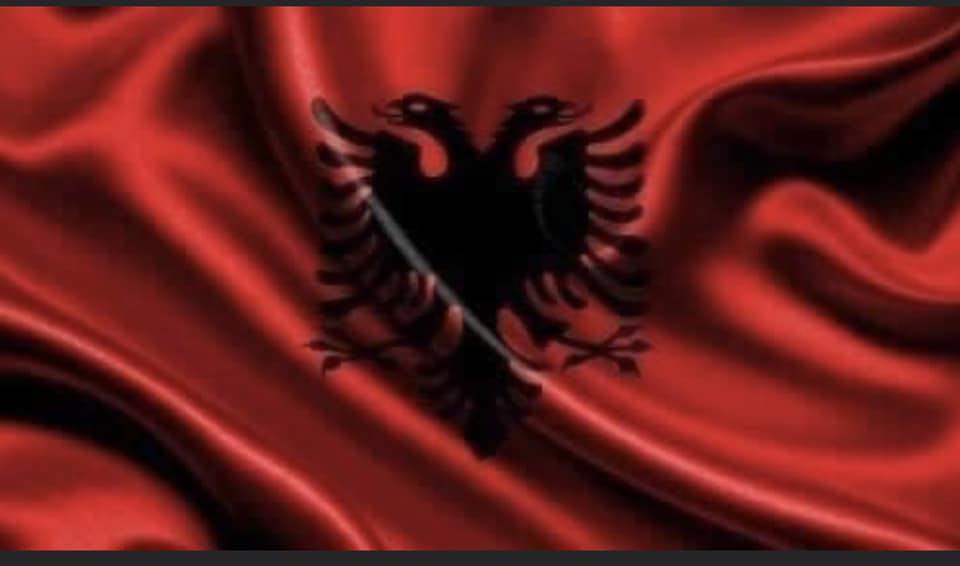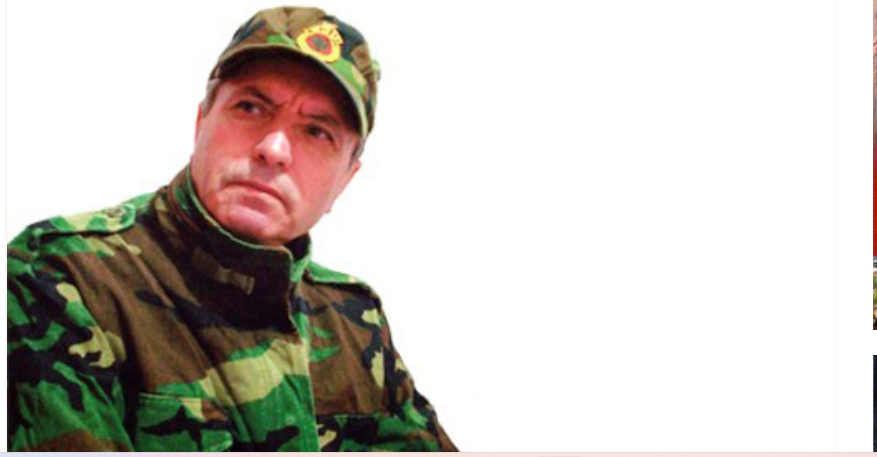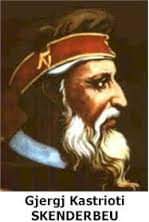Interview from journalist Linda Karadaku
The Albanian officer, Dilaver Goxhaj, former Deputy Commander of the KLA General Staff, claims that the departure of his KLA comrades to the Special Court recreated the creepy feelings when they were forced to close the eyes of the comrades who took the bullet. Colonel Goxhaj emphasizes in the interview given to Abcnews.al that Serbia is being treated as a victim of that war and of course something bad is being warned about Kosovo.
How did Albanian officers help in the Kosovo war?
The officers of the Republic of Albania who helped in the liberation war of Kosovo are divided into two groups: the first group are those who helped set up training centers in Albania and prepared (trained) volunteers coming from Kosovo and the diaspora to go to that war. This group started in the early ’90s. The profession of the officer, perhaps in general it is understood that he only commands and the soldiers obey. But no, it is not so. The officer is a teacher very different from the teaching profession. Teachers of every school level differentiate the students at the end of the school year, evaluate someone excellent, someone average, someone sufficient and leave someone a repeater of the school year. While the officer must teach and prepare practically all soldiers alike, because they will all attack at once, or all together will act to defend the position and region of defense and when the need arises they know how to retreat in order, but all together and in order, protecting each other. So the officer is obliged to be guided by the principle: See how I do and let’s do it together, as the man learns best by acting. This task is performed by officers who train KLA volunteers in training centers for the war, conducting one-month, two-month training, but there have been cases and more and less, depending on the situation in Kosovo. When NATO engaged in the war, then in the preparation of volunteers coming in large numbers from the West, including the US, the entire United Officer School was engaged in training the volunteers for freedom in Feken (Mountain with Pits) and Burrel. The other group of officers was us who entered Kosovo before NATO was engaged, but there were very few of us, only 5 people. Two of the officers were martyred, Indrit Cara from Kavaja and Tahir Sinani from Tropoja. The martyr from Tropoja, Tahir Sinani, was the Commander of the Second Operational Zone “Pashtriku”, the other martyr, Indrit Cara from Kavaja, was the commander of the autonomous company of the KLA General Staff, Adem Shehi – commander of No. 153 of the Operational Zone of Llapit, Bardhyl Tahiri, chief of engineering at the KLA General Staff, and I, whose main task was to maintain the KLA’s cooperation with NATO aviation, as well as the Deputy Chief of Staff. But there were also ordinary volunteer soldiers who had gone to Kosovo long before us, some of whom were martyred. We, the other officers and volunteers from Albania who volunteered in that liberation war, did nothing special but our duty as soldiers of the nation. “To fight for the nation outside any state structure,” said Faik Konica, “is a high virtue that can only come from a high consciousness.”
How do you remember that war, what was it like to fight together with Kosovo Albanians against the Serbian murderous machine?
We found Albanian colleagues there who had graduated from the military schools of the Yugoslav Federation and soon became one. The war, I talk about how I conceived it, turns the officer into a demigod, because all the subordinates you command, who are in the tens, hundreds of thousands, have their eyes on the commander, on the officer, they have entrusted him with direction and life, they have relied on him, as well as on the lessons he has taught them WHAT to do in each situation, WHEN to do it, and HOW they will do it, depends on the professional skills that the same officer has cultivated. War is war, it is not a chess game, where you have time to think to make the right move, but on the contrary, you have to assess the situation and make a decision within a few seconds, otherwise you are killed, as a superior in first and foremost and all your subordinates. So war requires knowing how to fight, knowing the temperament and character of each subordinate, knowing the weapons you use and their tactics, knowing the enemy you face well, as if you did not know the enemy as you know the forces that you command, victory is half for half, it is not known which side wins. In war, after wisdom, courage and bravery are essential. In war, they sacrifice from the simplest soldier to the highest commander of the army to survive the people and to defend the homeland.
You are right when you express your curiosity about “what it was like to fight together with the Kosovo Albanians ”
You may not take me for propaganda, but how many times have I had the opportunity to be on the front lines with my fellow Kosovar officers and there, in the trenches, when I had to instruct or supplement a colleague on how to act? in this or that case, even ordinary warriors from the dialect immediately understood that I was from Albania, and even more so when I spoke the Tosk Albanian dialect, Kosovar colleagues asked where this officer was from and when they were told he was from Gjirokastra, they forgot that the bullets came in front of them and pushed whoever touched me even a little with my hand. Their morale rose in a way I do not know how to explain, as you are likely to disbelieve. They said: Albania has come to war! and did not weigh the risk at all. When this question was repeated for the second time on another front, I asked my Kosovar colleagues why this kind of reaction? And I was surprised when they told me that in Kosovo there was propaganda by many intellectuals but also the party, that the South of Albania does not love Kosovo, they are with Greece. I am not going to dwell too much on this point that they will say as if I am doing propaganda, but that is the truth.
What did you see in the plains and mountains of Kosovo at that time, massacres, murders, destructions?
When I entered Kosovo, in the first days of March 1999, walking on foot from the Sharr Mountains, the outskirts of Kaçanik, the Jezerca Mountains, Topillë, Budakovë, Pagaruëa, the Berisha Mountains, where the KLA General Staff was located , I saw most of the villages burned, almost flattened, and the more I saw, the more my hatred against the enemy increased. If you do not hate the enemy, you cannot fight him. The massacre I have not had the opportunity to see, but mass graves – yes. You will say that in war you go to kill or be killed. It is not completely so. The war is waged with the conviction that you will liberate the homeland and return alive. You were thinking death, do not make your feet go to war. It is true that only in war are you allowed to kill, because in war no one kills out of hatred for X or Y, out of envy or to settle accounts, but everyone does it because it is demanded by the community, by your nation.
How did you experience the liberation of Kosovo and the departure of Serbian troops?
That experience I felt when the war ended and the fighters flew with the joy that Serbian forces were leaving and Kosovo was liberated. They did not find a way to express it and I sat and watched them with excitement, but I could not share their euphoria. A colleague approached me and asked: Shpetim (the name of the war), why do you remain astonished and do not interfere in this excitement? And I said to him: Now, these moments I am probably realizing how important and dreamy FREEDOM is. I was born in freedom and I come from freedom, so I find it hard to understand this kind of excitement and I am surprised.
How do you judge the sending of KLA leaders to The Hague? How harmful is it for Kosovo’s struggle for freedom and independence from Serbia?
During the four-month war, March-June 1999, I did not even have time to sleep and I did not think that such events could happen that I heard only one or two years after the war! The arrival of KLA comrades in that Special Court recreated my chills when we were forced to close the eyes of our comrades who were being shot. Based on the indictment of that Special Court, which states that the entire KLA command hierarchy, from the Commander of the General Staff to that of the last platoon according to the organic lineup of the KLA, will be questioned as defendants or witnesses, for alleged crimes committed by them or their subordinates in the war, while the party, which killed and burned all of Kosovo, which killed 11,840 innocent Albanians, of whom 1,392 children under 18, 296 children up to at 5 years old, 1,739 women, 1,882 elderly people over the age of 65 and 5081 aged 19-64 years, of whom 1,450 are still missing and all those killed were buried in over 530 mass graves, for which the President Bill Clinton, on April 12, 1999, said: “The stories we are hearing are truly horrific: Serbian forces gather Albanian villagers in groups, kill them with automatic weapons and set them on fire”; 20,400 Albanian women were raped; 100,589 houses, flats and similar facilities were burned and destroyed; 358 schools were burned; 71 institutional offices were burned; 30 houses of culture, 93 public libraries, 123 health facilities were burned; 215 religious buildings of the Muslim faith (mosques, tekkes, tombs) were burned; the Archive of the Islamic Community where documents from the 15th century were burned; 5 catholic churches were burned; 88,101 state and private auxiliary economic objects were burned; 70% of all livestock (cows, goats, cargo animals) etc. were slaughtered and sent to Serbia, and Serbia is treated as a victim of that war, of course something bad is warned about Kosovo. I am sorry that there are many Albanians who are excited and declare without drinking who’s responsible that 100 Albanian members or cadres of the LDK were allegedly killed by the KLA and its commanders without giving any evidence publicly, but secretly, through Serbia, which has sent 50 thousand pages with slanders of this category of Albanians and Serbs , which to me are blackmailers. Do you know what blackmail is?
remember what Balzac says: “Blackmail is one of the most vile murders; it is a crime far more abominable than murder; the killer needs terrible courage, while the blackmailer – no.
What is Kosovo for you?
Kosovo is Albania. Many Albanian intellectuals and politicians in Kosova and many other from Kosova who were born and lived in the Republic of Albania, often declare that “Enver, supposedly Albania, sold Kosova”. I ask them the question: Why did not you come to take from Serbia what Albania had once “sold” unjustly? I suspect that some of them are likely to be hidden witnesses of blackmail for those alleged murders by the KLA. I do not think that something more should be added to Konica’s statement that I emphasized above. But rest assured, that anyone who goes to war for liberation, goes for spiritual values, will always have against “ardent” patriots, as well as those who are patriots for the sake of the portfolio, but who often each other are embodied in the same person.
How was the cooperation with NATO?
Cooperation with NATO began in the afternoon of March 23, 1999 and ended on June 20, 1999, when we concluded talks with General Jackson, who had been appointed Commander of the KFOR Force. Unfortunately for us, until April 18, only twice NATO aircraft was able to strike the Serbian forces operating on the ground and clashing with our forces, which we regularly gave them, even 10 times a day. Due to the very bad meteorological conditions, it was raining and snowing incessantly and the clouds were very low, the aviation (pilot) could not see and hit the Serbian forces on the ground, but still hit the static objects where they were hiding , the ammunition, fuel, barracks and command centers of the Serbian army that we provided to them via satellite fax, which Serbia could not block, except in a few cases. Then we went through the connections in Tirana, but it is understood that there were some cases where the data became obsolete. In all the other days from April 18 until the end of the war the communication was perfect between the two sides.


Shënim:
Redaksia, diplomacia. dk nuk e merr përgjegjësinë për pikëpamjet e autorit në shkrimin e botuar!
Respekt!
